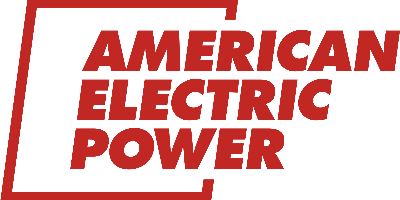
Philadelphia electricity rates - no ugly plans
Enter your zip code to compare Philadelphia electricity rates and electric companies.
Price To Compare
This is how much you would pay if you bought your energy directly from your utility.
Our 3 Cheapest Residential Plans

11.02/kWh

10.81/kWh

11.29/kWh

11.59/kWh
Recommendations For Your Home
Best Short-Term Plan
Reasons to select SaveTheRate6Plus
-
Lowest Rate Overall
-
Lowest Short-Term Rate
-
Lowest Estimated Monthly Cost
-
Highly Rated Supplier - Clearview Energy
-
Fixed Rate Plan.
-
No Hidden Fees.
10.3¢ / kWh
All-in Rate
6 mo
Term Length
Clearview Energy - SaveTheRate6Plus
Best 12 Month Plan
Reasons to select Electric 12 Month Fixed Rate
-
Lowest 12 Month Rate
-
Lowest Estimated Monthly Cost
-
Highly Rated Supplier - Public Power
-
Fixed Rate Plan.
-
No Hidden Fees.
10.9¢ / kWh
All-in Rate
12 mo
Term Length
Public Power - Electric 12 Month Fixed Rate
Best Long-Term Plan
Reasons to select Safe Harbor Value 20
-
Lowest Long-Term Rate
-
Lowest Estimated Monthly Cost
-
Highly Rated Supplier - Energy Harbor Corp.
-
Fixed Rate Plan.
-
No Hidden Fees.
12.2¢ / kWh
All-in Rate
20 mo
Term Length
Energy Harbor Corp. - Safe Harbor Value 20
Best Short-Term Plan
Reasons to select SaveTheRate6Plus
-
Lowest Rate Overall
-
Lowest Short-Term Rate
-
Lowest Estimated Monthly Cost
-
Highly Rated Supplier - Clearview Energy
-
Fixed Rate Plan.
-
No Hidden Fees.
10.3¢ / kWh
All-in Rate
6 mo
Term Length
Clearview Energy - SaveTheRate6Plus
Best 12 Month Plan
Reasons to select Electric 12 Month Fixed Rate
-
Lowest 12 Month Rate
-
Lowest Estimated Monthly Cost
-
Highly Rated Supplier - Public Power
-
Fixed Rate Plan.
-
No Hidden Fees.
10.9¢ / kWh
All-in Rate
12 mo
Term Length
Public Power - Electric 12 Month Fixed Rate
Best Long-Term Plan
Reasons to select Safe Harbor Value 20
-
Lowest Long-Term Rate
-
Lowest Estimated Monthly Cost
-
Highly Rated Supplier - Energy Harbor Corp.
-
Fixed Rate Plan.
-
No Hidden Fees.
12.2¢ / kWh
All-in Rate
20 mo
Term Length
Energy Harbor Corp. - Safe Harbor Value 20
Best Short-Term Plan
Reasons to select SaveTheRate6Plus
-
Lowest Rate Overall
-
Lowest Short-Term Rate
-
Lowest Estimated Monthly Cost
-
Highly Rated Supplier - Clearview Energy
-
Fixed Rate Plan.
-
No Hidden Fees.
10.3¢ / kWh
All-in Rate
6 mo
Term Length
Clearview Energy - SaveTheRate6Plus
Best 12 Month Plan
Reasons to select Electric 12 Month Fixed Rate
-
Lowest 12 Month Rate
-
Lowest Estimated Monthly Cost
-
Highly Rated Supplier - Public Power
-
Fixed Rate Plan.
-
No Hidden Fees.
10.9¢ / kWh
All-in Rate
12 mo
Term Length
Public Power - Electric 12 Month Fixed Rate
Best Long-Term Plan
Reasons to select Safe Harbor Value 20
-
Lowest Long-Term Rate
-
Lowest Estimated Monthly Cost
-
Highly Rated Supplier - Energy Harbor Corp.
-
Fixed Rate Plan.
-
No Hidden Fees.
12.2¢ / kWh
All-in Rate
20 mo
Term Length
Energy Harbor Corp. - Safe Harbor Value 20
|
Provider
|
Term Length
|
Rate at 1,000kWh
|
|---|---|---|
|
6 months
|
9.29¢
|
|
|
12 months
|
10.19¢
|
|
|
3 months
|
10.81¢
|
|
|
9 months
|
11.59¢
|
|
|
6 months
|
12.30¢
|
|
Provider
|
Term Length
|
Rate
|
|---|---|---|
|
6 months
|
10.56¢
|
|
|
6 months
|
11.96¢
|
|
|
6 months
|
12.48¢
|
|
|
18 months
|
12.85¢
|
|
|
3 months
|
14.31¢
|
Source: EnergyBot (updated daily)
Compare rates from electric companies in Philadelphia
Philadelphians are likely familar with PECO. PECO is the utility company that mantains the power lines and delivery of electricity in Philly.
When most people thinks about their electric company in Philadelphia, they think of PECO. But many people don't realize that there is another layer. There is a free market of energy providers who buy and sell energy.
As a consumer this means you have the potential to save money on your electric bill by selecting a plan from a third party provider.
Philadelphia Energy Providers and Utilities
Since Pennsylvania electric deregulation began in 1996, businesses have the power to choose their specific electricity provider or to continue to purchase from their utility company. For businesses of all sizes in Philadelphia, the deregulated market allows business owners to compare energy plans from top energy suppliers and shop for the best rate.
Energy Deregulation in Pennsylvania
In 1994 the Public Utilities Commission began investigating the energy market and published their findings in "The Report and Recommendation on Electric Competition". Their research convinced the state assembly to pass the Electricity Generation Customer Choice and Competition Act in 1996. Over the next 15 years, Pennsylvania removed market rate caps by region gradually forming a free market.
What is the difference between a Utility and an Energy Provider?
Utilities are the entities in charge of the operation and maintenance of the energy infrastructure, like wires and towers. The local utility in Philadelphia is PECO. Each utility is responsible for transporting electricity from the generators to residential homes and businesses in Philadelphia.
Energy providers in Philadelphia, like Direct Energy, Entrust, and Public Power, are the competitive energy retailers. Each energy provider buys energy from the wholesale market (the generators) and then re-sells it to consumers (homeowners, renters, and businesses).
In most cases, the consumer (the homeowner, renter, or business) signs a contract with an energy provider for a specific energy plan. The basic energy plan details the rate class, the energy rate per kWh, the contract term length (6, 12, 24, 36 months), and other contract terms like the cancellation fee policy.
Frequently Asked Questions
The current PECO electric price to compare for residential customers is $.11024 per kWh. The price to compare for commercial customers is $.09897. Both rates are scheduled to change on June 1, 2026.
Energy providers can set their own prices. Sometimes they’re lower than PECO’s default “price to compare,” sometimes they’re not. These providers buy electricity on the wholesale market and resell it.
When wholesale prices drop, their rates usually drop too. But if prices spike, their rates go up.
If you lock in a low rate when the market’s down, you can save a lot compared to the default PECO rate.
Peak hours are weekdays from 2 pm to 6 pm. This is when electricity is most in demand.
Why Trust EnergyBot
People Trust EnergyBot
In 7 years of working to demystify the energy industry, EnergyBot has helped over 100,000 customers. Whether you're looking to find the cheapest electricity rate, a stable contract that fits your budget, or plan for unique energy needs, we’ve been there to help. And we've gotten pretty darn good at it, with over 2,000 5-star reviews and millions in savings for our customers.
By pulling real energy usage data and sharing expert insights directly with you, we're empowering you to take control of your electricity bill. Whether that means cutting your monthly bill, improving energy efficiency, or both — we're always here to help.
Most importantly, we're here to help you save money. Not to sell you something you don’t need. We're paid a small commission fee by electricity providers when you sign a contract — not out of your rate. That means we can help you make the best energy decision for your home or business without taking a dime from your wallet.
2,000+ 5 Star Reviews
Trusted reviews directly from customers who have saved with us.
No Paid Placements
EnergyBot does not accept payments from suppliers to promote their plans.
120 Suppliers
We work with a variety of energy providers to ensure we can help you find the best plan.









